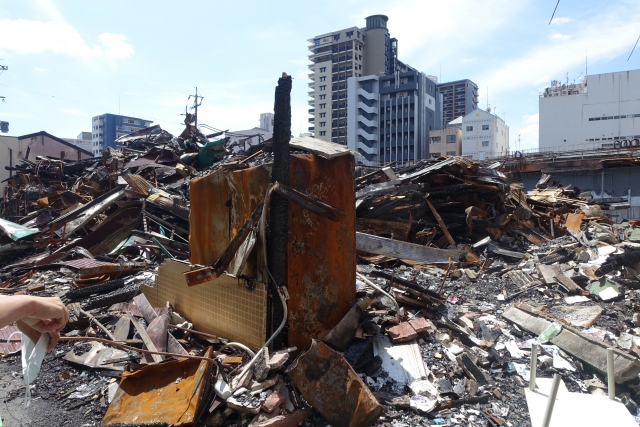Important Points to Consider When Buying Property in Earthquake-Prone Japan
2023-03-17
Real Estate Investment in Japan

The 2023 Turkey and Syria Earthquake was a tragic disaster that caused more than 50,000 fatalities and widespread damage, with thousands of collapsed homes and buildings.
Japan is no stranger to such disasters, being one of the most earthquake-prone countries in the world, with around 2,000 earthquakes recorded every year.
This is a very important consideration for real estate investment in Japan. While investing in real estate in Japan can be quite attractive, pursuing profitability without considering the risk from natural disasters can be catastrophic in more ways than one.
In this article, we introduce some important points to consider when investing in real estate in Japan.
■Check the earthquake risk level of the area in the municipality’s hazard map
The same earthquake can cause different seismic intensities (level of shaking) for each specific area. For example, a magnitude-5 earthquake in the Kanto region can have different intensities in central Tokyo and in Yokohama.
When considering the earthquake risk for a specific property, you should not only rely on wide-area risk information, but check the detailed risk level for the specific area in the specific municipality. For example, if the property is located in Roppongi 1-chome, Minato-ku, Tokyo, then you should check the risk level given for that specific area by the Minato Ward Office.
Every prefecture and municipality in Japan provides a hazard map that details the risk level of each specific area under their jurisdiction during an earthquake. This hazard map is usually available in the municipality’s website and also as a free paper map.
For example, the following link shows a hazard map for Kanagawa Prefecture. The map is divided into a grid 250 m2 cells that are colored depending on their earthquake risk level.
Kanagawa Prefecture Earthquake Hazard Map (Japanese)
Of course, such hazard maps are based on approximations, and it may be difficult to judge the risk level of a property based on a hazard map alone. It is a good idea to inquire with a real estate agency who can provide an overall assessment of its risk level as well as its estimated rental demand.
■Check whether the property falls under the old or new seismic standards
Another important consideration is the seismic standard (building code) under which the property is covered.
Being an earthquake-prone country, Japan has established strict earthquake-resistance standards under the Building Standard Law. Whenever a property is built, a designated inspection agency will check if the building meets these standards.
If a building does not meet these standards, permission to use the building will not be granted. In other words, you can safely assume that any newly-built property that has passed inspection meets the earthquake-resistance standards of the Building Standard Law.
However, this is not always the case for older properties. Specifically, properties built before May 1981 (when the Building Standard Law was amended) fall under the old building standards (kyu-taishin), and may not be compliant with the new standards (shin-taishin).
If you choose to buy a property that is covered by the old building standards, you may need to retrofit it to bring it up to the new standards before leasing it out. Furthermore, since such properties have a lower collateral value, it may be more difficult to apply for a housing loan.
In general, it is a good idea to avoid buying properties that fall under the old building standards, especially if you are not very familiar with real estate regulations and procedures in Japan.
Click here to consult about buying property in Japan
■Get fire insurance and consider getting earthquake insurance
To mitigate the risk of financial loss from your investment property due to natural disasters, it is crucial to get fire insurance and earthquake insurance.
Fire insurance covers property damage caused not just by fire, but also by typhoons, flooding, and other water damage from natural disasters. However, it does not cover damage caused by earthquakes.
In order to cover damage caused by earthquakes, you also need to get earthquake insurance. Note that the maximum amount insured by earthquake insurance is 50 million yen, so depending on the value of your property, you may not be able to cover its entire cost.
However, it is still a good idea to get earthquake insurance in order to minimize your financial losses in case the property gets destroyed in an earthquake.
At wagaya Japan, we have highly-experienced multilingual staff who can provide total support for your real estate investment in Japan. wagaya Japan will help you choose the best and safest properties for your investment.


